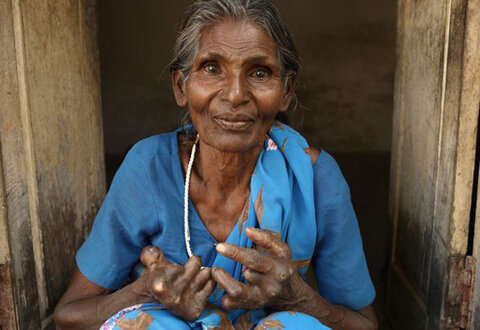Women and men must benefit equally from leprosy efforts

Article originally posted at ilepfederation.org
In many developing countries where leprosy is prevalent, women with leprosy face triple discrimination, beyond leprosy and disability, due to gender, (read more in ILEP’s Triple Jeopardy Report).
Many women face challenges when trying to access necessary healthcare and advice. Some may not be able to attend a clinic due to the time this involves or because they require the permission of others. This can delay their diagnosis, which increases their chances of developing life-long impairment and disabilities.
Women and girls who contract leprosy can also face heightened discrimination. Some are kept indoors to avoid discrimination and stigma from others in their communities. These women can become “invisible,” not obtaining the required treatment or assistance, or not included in local data and records.
In some countries, leprosy has been used as grounds for divorce. The discrimination, lack of information and entrenched attitudes about leprosy can leave women and girls vulnerable to abuse; Kalpana, a young Indian woman, faced abuse at the hands of her husband after he found out she had leprosy.
Detecting, diagnosing and treating leprosy early on has clear benefits. Impairments can be prevented or minimised, and discrimination avoided; Poonam’s story is an example of how treatment can achieve long-term benefits. With treatment and aftercare, Poonam now has near full-use of her affected hand. Kalpana also received help from Lepra, an ILEP Member. She completed a course of multi-drug therapy to completely cure her leprosy.
A holistic approach, as reflected in ILEP’s Triple Zero initiative, aims to stop the transmission of the disease, the impairments and disabilities it causes, and the discrimination that many face. To ensure that women and girls affected by leprosy also face a better future, we are making efforts to specifically include women in all three aspects of our focus.
The “invisible” women and girls must not be left behind. Women and men are equally affected by leprosy. We must make sure they equally benefit from efforts to reach Zero Transmission, Zero Disabilities and Zero Discrimination.
About the International Federation of Anti-Leprosy Associations
The ILEP Federation is a consortium of NGOs committed to working together to fight leprosy, in partnership with other committed to this common goal.
Find out more ILEP about the here.